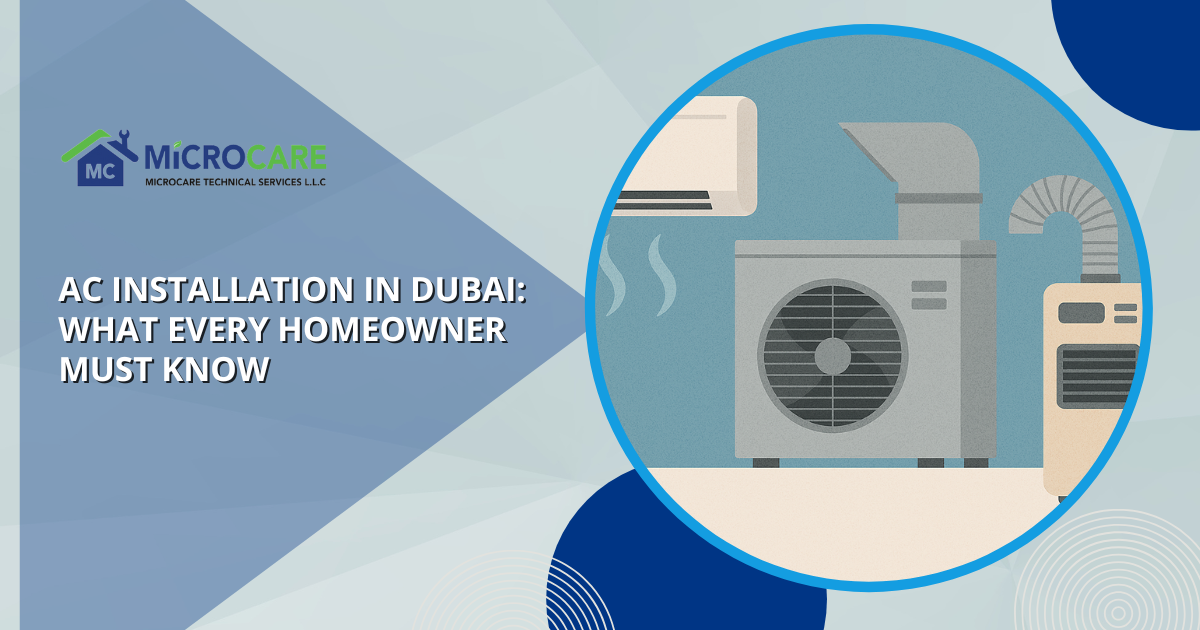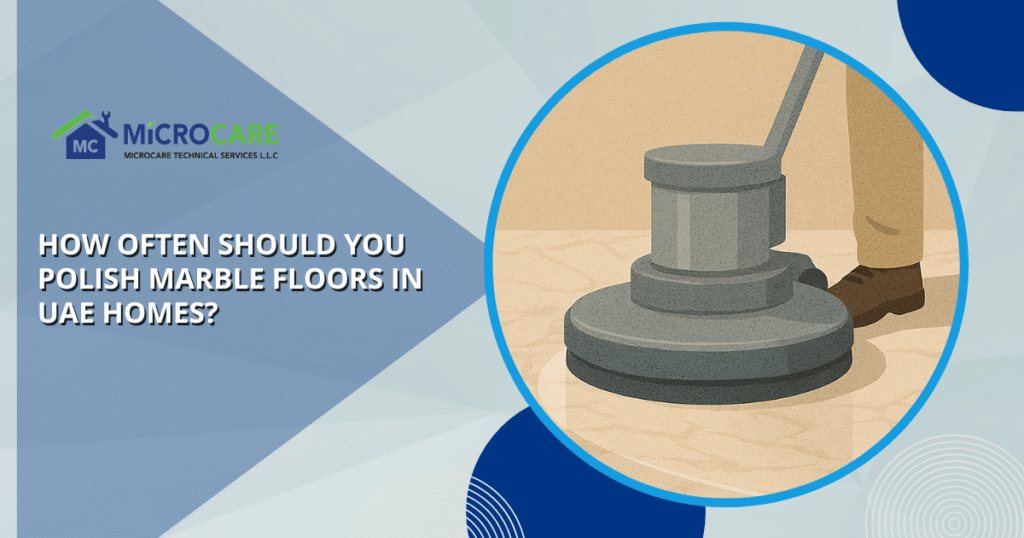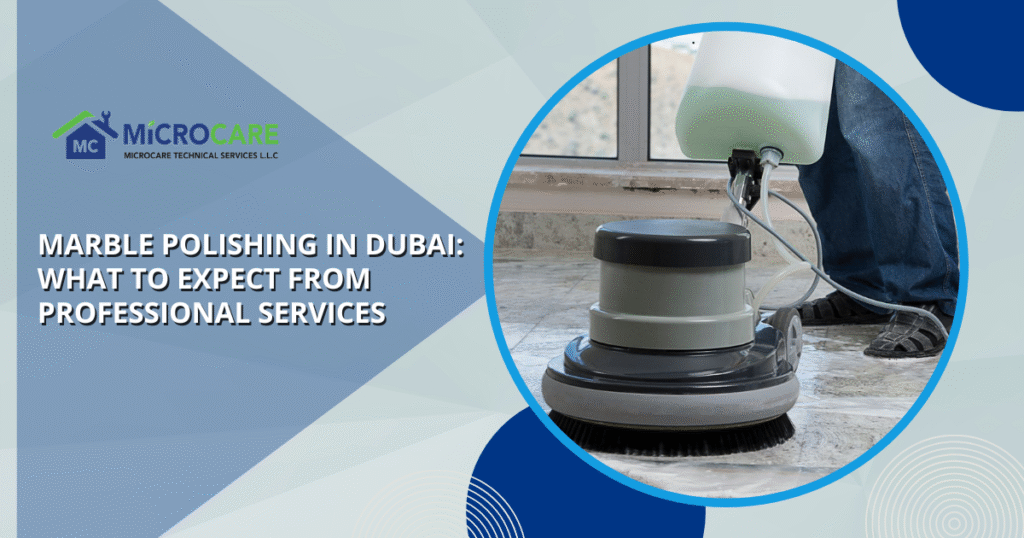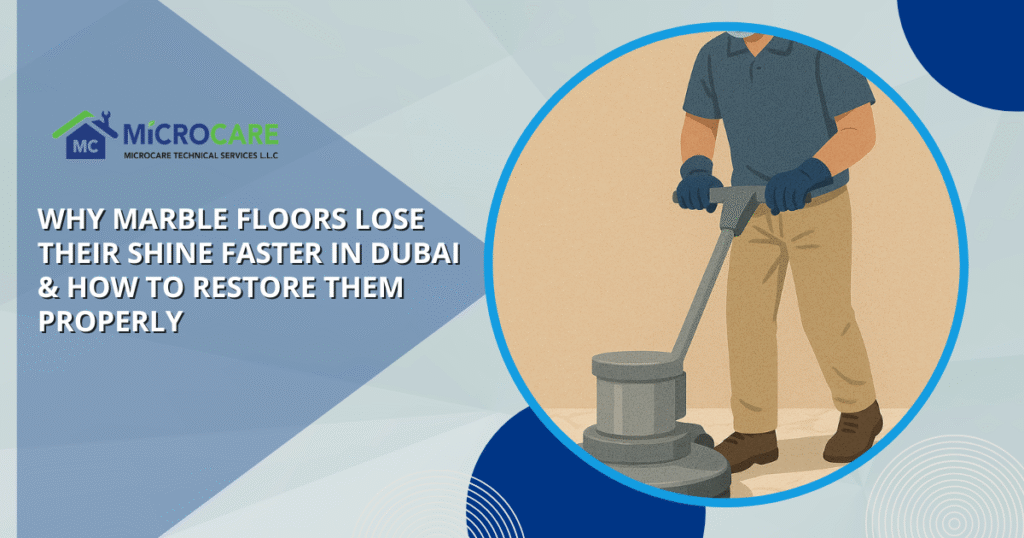AC installation Dubai isn’t just about staying cool indoors, ensuring comfort in your home throughout the year in a city where temperatures can easily go past 45°C is the primary objective. Whether you’re moving into a new home or replacing an outdated system, understanding the key aspects of air conditioning installation will help you make smart, cost-effective decisions. With so many options, regulations, and service providers in Dubai, it is important to get it right from the starting.
In this blog, we at Microcare will guide you through everything homeowners in Dubai need to know about AC installation in Dubai from types of units and installation procedures to legal considerations and maintenance tips.
Why AC Installation Is Crucial in Dubai
Dubai’s desert climate makes air conditioning a must have for every home. Without proper cooling, indoor temperatures can get pretty high, impacting your comfort, health, and also productivity. But it is not just about cooling, a well-installed AC system can improve indoor air quality, reduce humidity, and help with energy savings over time.
Choosing the Right Type of AC System for Your Home
Before we jump into the AC installation process, you need to decide which type of system will best suit your home and lifestyle. Here are the most common systems used in Dubai:
1. Split AC Units
These are ideal for individual rooms, more affordable and easier to install. These split systems offer independent temperature control with each unit but are not suitable for larger villas or apartments because of their limited cooling power.
2. Ducted/Central AC Systems
Central AC installation UAE is typically found in villas, large apartments, or commercial buildings like warehouses, malls, etc. These centralized systems use a network of ducts to distribute cool air evenly throughout the property. However, this system is more expensive upfront but offer better energy efficiency and looks better when installed.
3. Portable AC Units
These are best used as temporary solutions or for small areas. While convenient, because of their portability they are not ideal for large space use because of their weaker cooling capacity. For larger spaces multiple units are needed to cool the space evenly and effectively.
4. VRF/VRV Systems
These systems are popular in premium residential and commercial settings. They are energy-efficient and allow cool multiple zones independently in the property. They have a higher price tag but are ideal for larger properties.
The AC Installation Process in Dubai
Proper air conditioner installation Dubai includes several important steps. Here’s what a typical AC installation process looks like:
1. Site Inspection and Load Calculation
Professional technicians will visit your home to evaluate the space, insulation, and your cooling needs. They perform a load calculation to determine the appropriate capacity of the AC unit.
2. System Selection
Based on the site inspection and load calculation, a suitable AC model and configuration will be suggested. It can either be a split system or a ducted solution. Efficiency ratings and brand reliability are also considered at this stage. If you’ve done some research on your own or have some questions, this is the perfect time to share with the team.
3. Installation Planning
Before the AC system installation begins, a layout is prepared to determine the optimal locations for indoor and outdoor units (if any), ductwork (if required), electrical wiring, and drainage systems.
4. Actual Installation
Certified technicians will carry out the physical installation. This includes:
- Mounting indoor and outdoor units (if any)
- Laying down refrigerant piping and electrical lines
- Setting up thermostats and control panels
- Connecting to power and testing to see if the system is working optimally
5. Final Testing
Now team will do final tests on the system for performance, cooling efficiency, and safety. If there are any leaks or issues, the team will fix them immediately.
Common Challenges in AC Installation in Dubai
While AC installation in Dubai is pretty common still several challenges can come up:
1. Building Regulations
Dubai Municipality and other authorities have strict guidelines for HVAC installations, especially in shared properties like flats and apartment buildings. Permissions and compliance checks may delay installation if not handled properly. Always ask the property officials in advance before proceeding with AC installation.
2. Space Constraints
Some homes may not have enough space for ductwork or outdoor units, requiring custom solutions.
3. Extreme Weather
Dubai’s high heat and dusty conditions can affect installation timelines and system performance. So keep the outdoor conditions in mind before scheduling an installation service.
Legal and Regulatory Considerations
When planning an AC installation, it’s important to work with licensed technicians who understand local codes and regulations. Improper installations can lead to fines, energy inefficiency, and safety hazards.
Some regulations include:
- Use of energy-efficient systems (minimum EER ratings)
- Proper refrigerant handling to prevent environmental harm
- Fire safety and electrical compliance
Microcare’s AC installation service, like other reputable service providers in Dubai, ensures all local standards and municipality requirements are met.
Cost of AC Installation in Dubai
The cost can vary significantly depending on:
- Type and brand of the AC system (reputable brands may cost more)
- Size of your home
- Complexity of installation
- Ductwork and electrical modifications, if needed
Here’s a rough estimate:
- Split AC installation: AED 1,500 to AED 4,000 per unit
- Central AC installation: AED 10,000 to AED 30,000+
- VRF systems: AED 40,000 and above for larger villas
Make sure you get multiple quotes and compare warranties, service contracts between all before finalizing on what you’re going to get.
Energy Efficiency and Long-Term Savings
Opting for energy-efficient models (rated with 4-5 stars or higher EER) can significantly reduce your DEWA bills. Units with inverter technology, smart thermostats, and regular maintenance will help you maximize performance and save on bills.
Maintenance Tips After Installation
Installing an AC system is just the beginning. To make sure of long-term performance and durability, follow these maintenance tips:
1. Schedule Regular Servicing
Have your system inspected at least twice a year. Regular servicing includes cleaning filters, checking refrigerant levels, and cleaning of all AC components.
Microcare offers AC Duct & Deep Cleaning, simply click on the link and have ease of mind today.
2. Clean or Replace Filters Monthly
Clogged filters restrict airflow and reduce efficiency. Cleaning or replacing them monthly is an easy way to make sure you system keeps running at max efficiency.
3. Keep Outdoor Units Clear
If your AC system has any outdoor units then make sure the area surrounding is free from debris, plants, or dust that may block airflow.
4. Check Thermostat Settings
Incorrect settings can lead to overuse and higher energy bills. Smart thermostats help maintain optimal comfort while saving energy, so invest in them if possible.
How to Choose the Right AC Installation Provider
Not all service providers are equal. Here’s what to look for when hiring a company:
- Licensing and Certification: Ensure they are authorized to perform AC installation in Dubai.
- Experience: Choose providers with a solid track record and positive client reviews.
- Post-installation Support: Check if they offer warranties and long-term maintenance packages.
- Transparency: Get a detailed quote that includes labor, equipment, and additional charges.
Microcare Technical Services offer professional, code-compliant installation backed by experienced technicians familiar with Dubai’s unique climate and construction standards.
Conclusion
AC installation in Dubai is much more than a simple technical task. It’s a long term investment in your home’s comfort, efficiency, and value. From selecting the right system to ensuring it complies with local regulations, to ensuring it is maintained properly, each step is vital. With high temperatures and strict building codes, relying on professional, certified installers is a must.
Whether you’re building a new home, upgrading an old system, or just exploring options, understanding the AC installation process gives you the knowledge you need to make an informed decision. And with regular maintenance, your new air conditioning system will serve you well for years to come.





